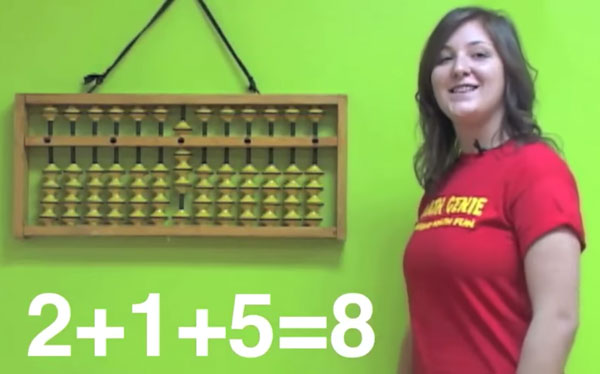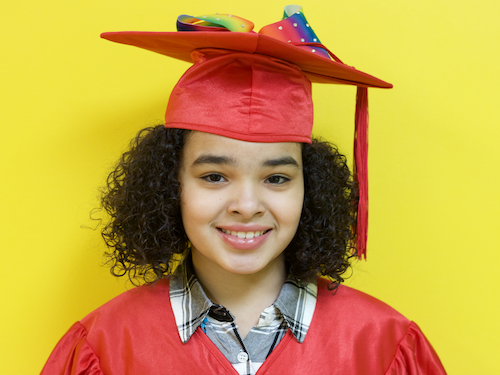Parent's Guide to First Grade in New Jersey
First grade is a special and exciting time when your child begins to blossom both academically and socially. It’s the year they build upon the basics learned in kindergarten and start developing more advanced reading, writing, and math skills that form the foundation for future learning. They’ll learn to read with understanding, write complete thoughts, explore numbers and simple equations, and discover the world through science and social studies. Beyond academics, first grade helps children grow in confidence, independence, and problem-solving as they learn to work with others and express themselves more clearly. It’s a big step, but with encouragement and support, your child will thrive and gain the skills they need for a lifelong love of learning.
Here are some resources you can use to help your first grade learner excel.
Things Your Child Should Know Before First Grade
The transition from kindergarten to first grade is an exciting milestone filled with new challenges and opportunities for growth. As your child moves into this next stage, they will be expected to apply what they’ve learned in kindergarten to more advanced reading, writing, math, science, and social studies skills, while also developing stronger focus and independence. Our article Things Your Child Should Know Before First Grade outlines the essential academic and social skills every child should have before starting first grade, from recognizing letters and sight words to solving basic math problems and participating in group activities.
What Do First Graders Learn in Math?
First grade is when your child’s math journey truly begins to take shape. This is the year they move beyond simple counting to explore addition, subtraction, place value, geometry, measurement, and time. They’ll start to see how numbers work together, recognize patterns, and solve real-world problems—all skills that build a strong foundation for future learning. In our guide on What Do First Graders Learn in Math, we will walk you through the eight core math topics your first grader will learn and share how these lessons develop critical thinking, confidence, and curiosity about the world around them. Whether your child is eager to get ahead or needs extra support, understanding what to expect in first-grade math can help you guide their success every step of the way.
Common Problem Areas for First Grade Students
For many students, first grade can be a big year for transitions. As they adjust to longer school days, new routines, and higher academic expectations, it’s common for some students to face difficulties in reading, writing, math, focus, or organization. These challenges are a normal part of learning, and every child develops at their own pace. We've created an article exploring common problem areas for first graders and share ways you can support your child through encouragement, communication, and the right learning resources. With patience, understanding, and a little extra help, your child can overcome obstacles and build the confidence they need to thrive in school and beyond.
Is Your First Grade Student Struggling With Math?
First grade is an important year for learning foundational math concepts. Between learning addition, subtraction, fractions, and word problems, it’s normal for some children to feel overwhelmed or fall behind. Every child develops these skills at their own pace, and early struggles don’t mean they can’t succeed—they just need the right guidance and encouragement. In our guide, we’ll help you recognize the signs that your first grader may be struggling with math and share practical ways to support them both at home and through our personalized programs at Genie Academy, where learning math becomes engaging, rewarding, and fun.
Is Your First Grade Reader on Track?
At Genie Academy, we understand that first grade is a vital time in your child’s reading journey as they move from simply recognizing letters and sounds to truly understanding what they read. During this stage, your child should begin demonstrating stronger comprehension, smoother reading fluency, and the ability to recognize patterns in words. It’s also important that they can retell stories and think critically about what they’ve read. In our Guide to First Grade Reading, we’ll help you recognize key signs that show your first grader is on track—and what to do if they need a little extra support to build a strong foundation for lifelong reading success.
NJ Math SLS for Grade 1
The New Jersey Student Learning Standards (SLS) for first grade math covers all the math concepts a first grader is expected to learn in the year. These standards focus on building a strong foundation in four key areas: addition and subtraction within 20, understanding place value and number relationships, learning basic measurement concepts, and exploring the properties of geometric shapes. Through these lessons, children develop problem-solving skills, number sense, and spatial reasoning that will prepare them for more advanced math in later grades. Learn more about the NJ Math SLS for First Grade to help you better understand what your child will be learning—and how Genie Academy can support them every step of the way.
.png?width=193&height=156&name=GenieAcademy-Logo7%20(4).png)











